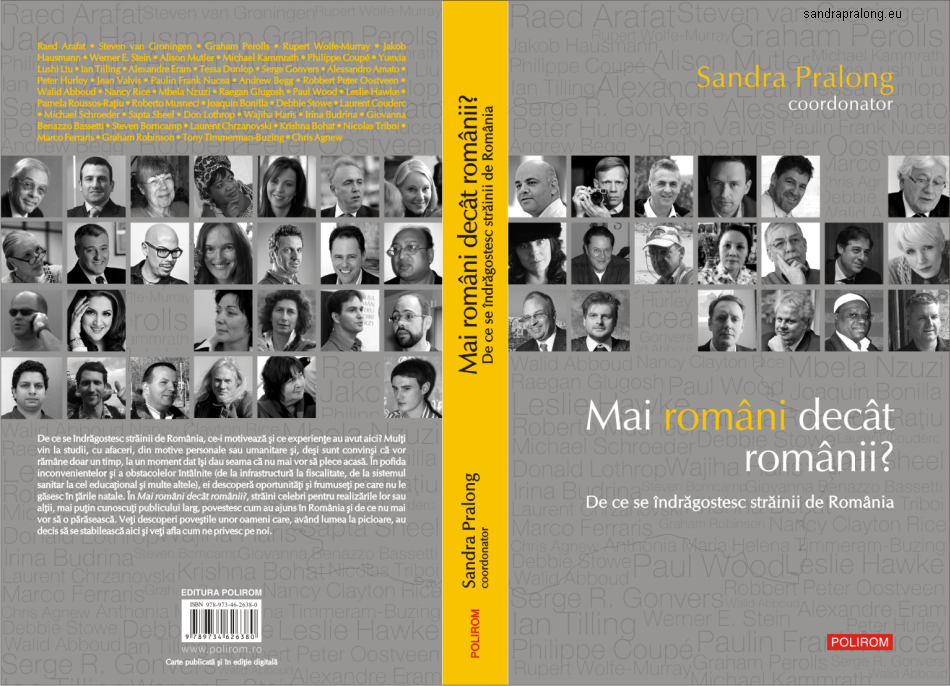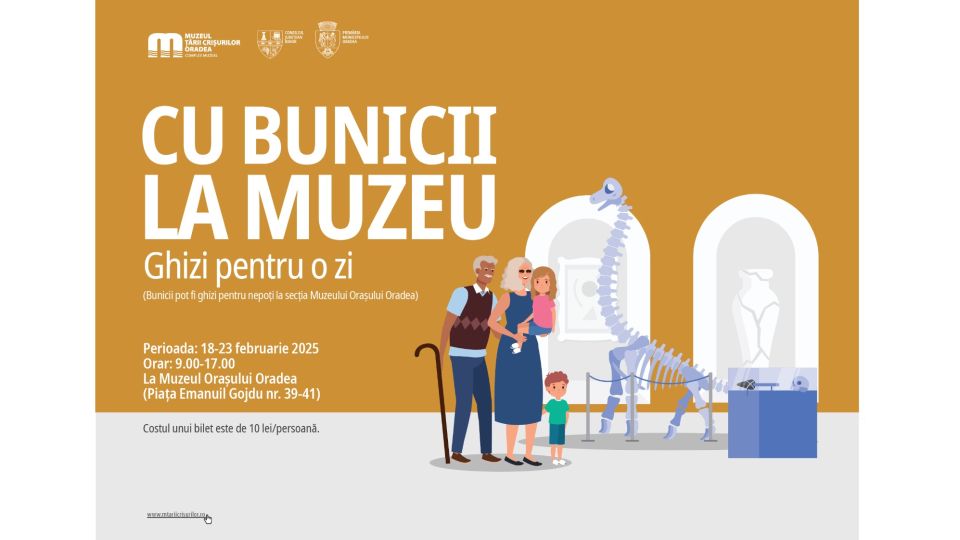More Romanian than Romanians
A talk with Sandra Pralong, the coordinator of “Why Foreigners Fall in Love with Romania – a book of interviews with foreign nationals living in Romania.

Iuliana Sima Anghel, 15.12.2013, 13:11
You can find lots of foreigners in Romania, mostly business people, but also teachers and students, as well as a lot of people working for NGOs. Some of the corporation managers and students choose to settle in Romania at the end of their stint here. Recently, in recognition of this phenomenon, Sandra Pralong, a sociologist and civic activist has published a book entitled “More Romanian than Romanians. Why Foreigners Fall in Love with Romania”. She talked to 45 foreigners, some famous, some not, who chose to live in Romania. Among them are Raed Arafat, the founder of emergency services in Romania, Peter Hurley, an Irishman who fell in love with the Romanian countryside, and Leslie Hawke, an American Peace Corps volunteer, who founded an NGO locally.
Sandra Pralong told us this book was intended as a sequel to her other book, “Why I Returned to Romania”, in which 40 well-known Romanians in exile, who either left during communism or had careers abroad, tell everyone why they came back to their country. The author told us that these people reveal what is best about Romania and its people:
“Some people chose Romania, which means that they love it with its good and bad parts. I liked the idea of raising a mirror to our faces, allowing us to see ourselves in a truer and nicer way than we see ourselves and each other every day in our public sphere.”
Most of the people who tell their tale come from Europe, but there are also people who come from North America, Asia, Africa and Australia. Every one of them has a different tale to tell, and a different reason for which they chose to live in Romania. The selection was purely subjective, according to the author:
“I started with the people I knew personally, and I asked everyone to recommend 2 or 3 other people. The stories are built in a very interesting way. At some point, I wanted to see if there was some balance between nationalities, but in a very natural way they happened to be very different, people of 18 nationalities from five continents, both men and women.”
She asked them what they appreciate about Romanians. They mentioned generosity, hospitality, the special world of the village, and the traditions here. They also meted out criticism, which is often constructive. One of them is the fear of taking responsibility on the job, at all levels. One of the 45 people interviewed for the book is Roberto Musneci, vice-president of the Romanian-Italian Chamber of Commerce and co-founder of the Aspen Institute in Bucharest. In 2002, he was sent from London to Bucharest to run the branch of a multi-national corporation. After a few years in Romania, he was invited to run another company in another country. He turned down the offer, choosing to stay in Romania and found his own company. Asked why he chose to stay, he said that he has a hard time answering:
“I believe that this decision was made based on several elements, not all of them rational. A basic element was that between 2006 and 2008, things in Romania were moving very fast, in social life and in business. This fast pace acted as a magnet for me. Also, the professional opportunities were of great interest. An Italian like me had a great affinity with the way that Romanians think, which also played an important role.”
Sandra Pralong has a lot in common with the protagonists of her volume. She is a success story, a Romanian who worked abroad and who decided to return home and do her part to help Romanian society recover from the deep wounds left by half a century of communist rule. She has put her name to a lot of initiatives in civic life and in education:
“One the one hand, I am 110% Romanian, on the other, having lived so long abroad, I had the opportunity of forming a very different set of reflexes. What I found that I had most in common with the people in my book was the need to respect one’s country. I believe that this is what hurts the most. When I hear my country badmouthed, I feel badmouthed myself.”
Since a lot of foreigners brought an important contribution to modernizing Romania under the reign of King Carol I, the book also contains short biographies of Europeans who helped the first king of Romania transform the country. These vignettes are written by the head of protocol of the Romanian Royal House, Sandra Gatejeanu-Gheorghe.






























